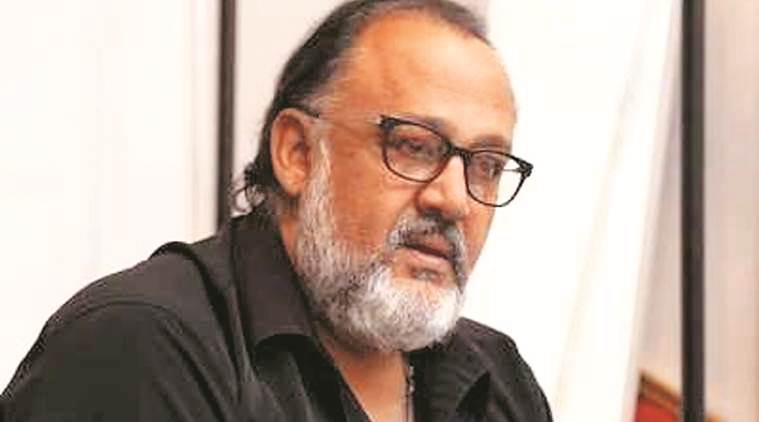 Nath’s wife Ashu Singh is Plaintiff Number 1 in the suit that she and Nath filed against Nanda at Dindoshi Court last month, seeking to restrain her from speaking out in public and also damages of Re 1.
Nath’s wife Ashu Singh is Plaintiff Number 1 in the suit that she and Nath filed against Nanda at Dindoshi Court last month, seeking to restrain her from speaking out in public and also damages of Re 1.
In a detailed order dismissing an injunction sought by actor Alok Nath on screenwriter Vinta Nanda from making public statements about her rape allegations, the Bombay City Civil and Sessions Court ruled that Nath’s wife Ashu Singh cannot file a civil defamation suit on her husband’s behalf.
Singh is Plaintiff Number 1 in the suit that she and Nath filed against Nanda at Dindoshi Court last month, seeking to restrain her from speaking out in public and also damages of Re 1.
In a Facebook post last month, Nanda had written a detailed account of being raped 19 years ago while working as a writer on the television show Tara. However, she had not named Nath as the rapist.
While filing the injunction plea, Singh and Nath’s lawyer, Ashok Saraogi, had sought refuge in Order 1, Rule 8 of the Criminal Procedure Code, which states that with the permission of the court, any person may sue on behalf of another person in a suit where “numerous persons have the same interest”. Observing that the plaintiffs had not sought the court’s permission before instituting the
suit, as required under the CrPC, Judge S U Baghele ruled that the plaintiffs could not invoke that provision.
Observing that Singh and Nath had sought to project themselves as numerous persons, Judge Baghele stated: “By no stretch of (the) imagination, any prudent person can be expected to believe that two persons would be falling within the ambit of the phrase ‘numerous’.”
While not commenting on Singh appearing as Plaintiff Number 1 in the suit, the judge ruled that she could not claim to be defamed as a result of statements directed at her husband.
“Even if any other person related to him is affected thereby, the same may not amount to defamation, barring the situation wherein the person sought to be defamed is dead and the defamatory statement affects the feelings of the persons related to the deceased. In other words, the defamation is a personal wrong, qua the person sought to be defamed, but it cannot, by any stretch of (the) imagination, be expected to be applicable to the other persons related to the person defamed, though they may feel aggrieved by the said statement in any manner,” the order states.
The judge also observed that a defamatory action dies “as soon as the person defamed ceases to exist”. The legal heirs of a deceased defamed person can also not move court seeking compensation as a result of a defamatory statement against the person, the order states.
“Relatives of the defamed person cannot be said to fall within the ambit of the persons defamed, as the direct or indirect result of the defamatory statement, aimed at harming the reputation of the particular person,” Judge Baghele observed.
On October 26, the judge had ruled that Singh was not entitled for ad-interim relief as she does not have any locus standi to file the defamation suit on behalf of Nath. After the order was announced, Nanda’s lawyer, Dhruti Kapadia, had hailed the verdict as a victory for free speech and added that it would embolden more women to publicly stand up to powerful men who had sexually abused and harassed.
After writing the Facebook post at the start of the #MeTooIndia movement, Nanda had also given a written complaint to the Oshiwara police station accusing Nath of rape. Nath and Singh had then filed a case of criminal defamation against Nanda. Through Advocate Saraogi, Nath had last month also asked for a showcause notice issued to him by the Cine and TV Artists Association to be withdrawn.